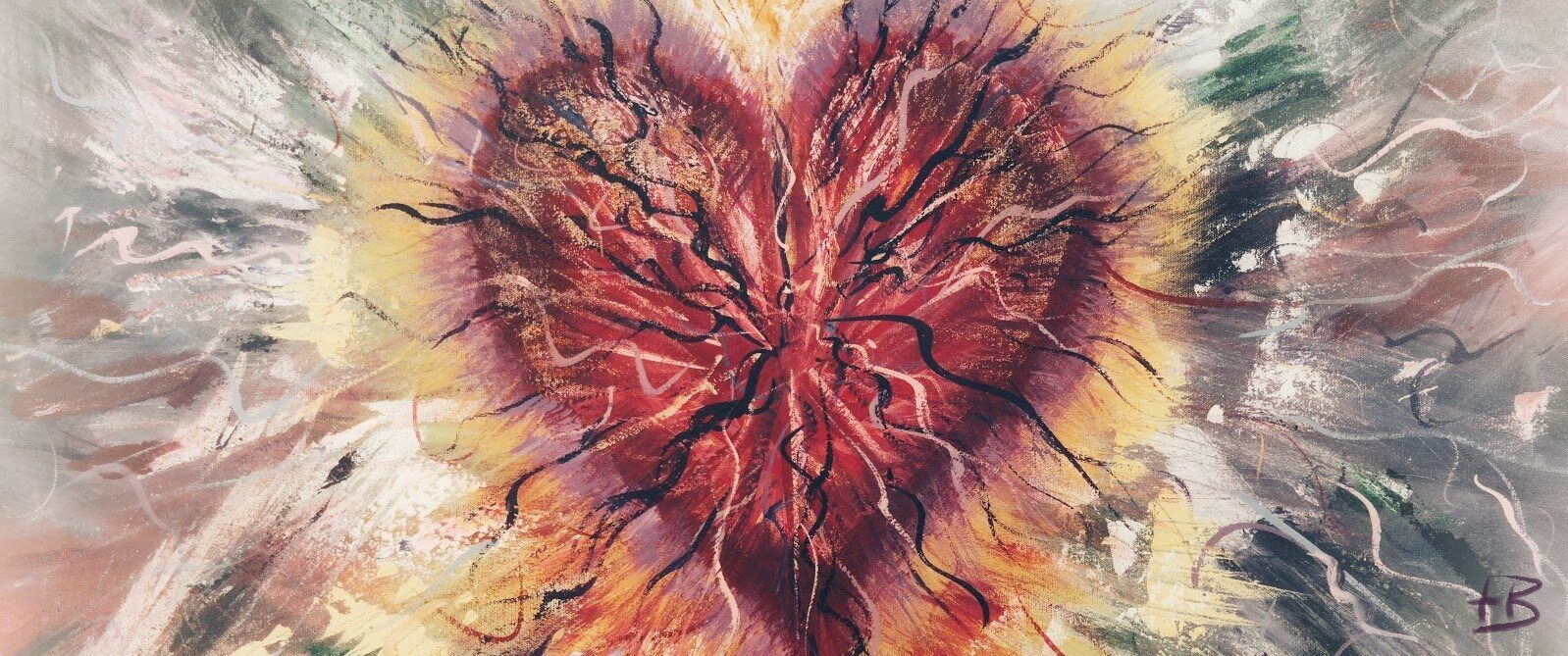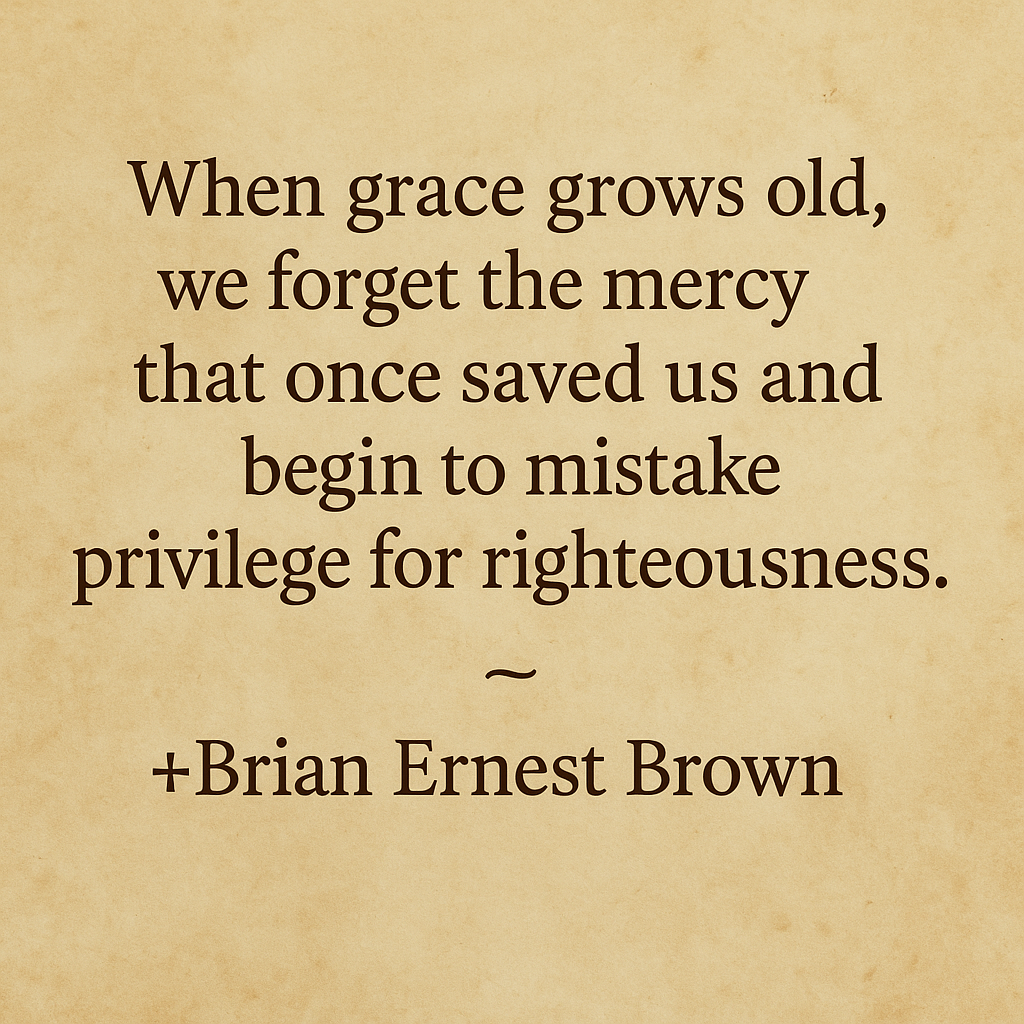When Grace Grows Old
By +Brian Ernest Brown
I am part of Generation X. I grew up in the 1970s and 80s, when rotary phones hung on kitchen walls, Saturday mornings smelled like cereal and cartoons, and moral certainty seemed far simpler. We were the latchkey kids, half-wild, half-wise, learning independence while trying to make sense of a changing world.
Now, decades later, I’ve watched friends and peers, people who once questioned authority and distrusted rigidity, harden into the very dogmatism they once resisted. Somewhere between youthful rebellion and middle-aged security, something sacred went missing. The grace we were freely given seems to have calcified into judgment.
It is a strange heartbreak to see it.
People who were once rescued by mercy now demanding punishment for others.
People who once stumbled through addiction or divorce or poverty now speaking as if righteousness were a trophy they earned rather than a gift they received.
People who once depended on compassion now campaigning against it.
One friend on social media recently posted that all SNAP recipients should be drug tested before being allowed to receive food assistance. She wrote it confidently, perhaps believing she was standing up for “responsibility.”
What she didn’t seem to remember, or didn’t want to, is that years ago, when she was struggling with addiction and raising young children alone, she herself relied on food and financial aid. She received it without conditions, and that undeserved grace was the first step on her road to recovery.
If the rules she now champions had been in place then, she and her children might not have survived long enough to be helped.
That, to me, is the crux of what happens when grace grows old. We forget that mercy is not a transaction; it is the soil in which redemption grows. Once we’ve been restored, we are tempted to protect our newfound order by withholding the very compassion that once saved us. It feels righteous, even responsible, but it is, in truth, fear disguised as morality.
This is not the via media, the middle way. It is the my way or the highway, the path of self-justification masquerading as faith.
The middle way does not mean soft conviction. It means remembering where we came from, the hand that lifted us, the mercy that sustained us. It means holding grace and truth in tension, refusing to weaponize either. It means recalling that none of us is self-made, and that the commandments of God were never meant to replace the compassion of Christ.
When Jesus met the woman caught in adultery, He did not hand her a moral policy manual. He knelt in the dust beside her. He did not excuse sin, but neither did He let the crowd’s self-righteous fury become the law of the land. He saved her not by ideology, but by love.
And that, perhaps, is the lesson our generation needs most: Grace is not a phase we outgrow. It is the very air we breathe.
When grace grows old, judgment thrives. But when grace remains young in us humble, tender, grateful it can still redeem the world.
Amen!


